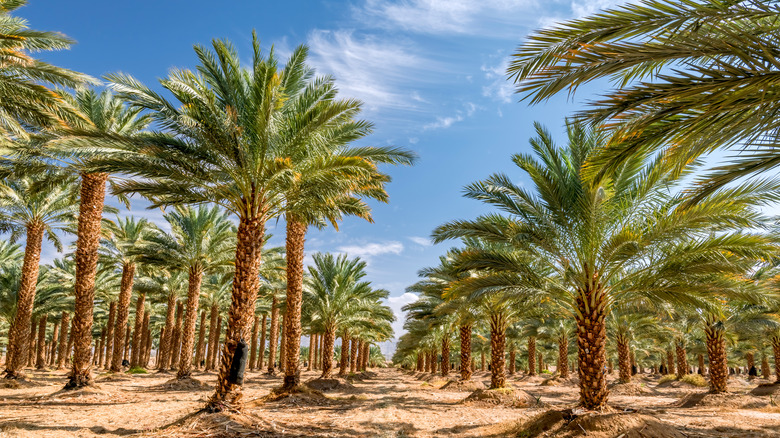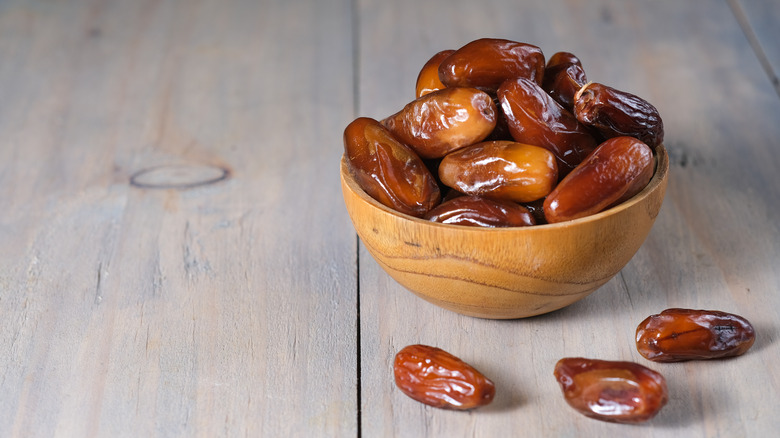Why Tunisia's Famous Dates Could Soon Be A Thing Of The Past
Date palms are said to grow with their feet in the water and their heads in the fire according to dried fruit and nut producer, Color Foods. The saying means that date palms require both abundant water and lots of sunshine in order to thrive. In Tunisia, famous for its Deglet Nour variety of dates, that balance of water and sun has been disrupted.
Tunisian date palms have historically flourished in desert oases, one of which is the Kebili oasis in southern Tunisia. Kartago Dates explains that Tunisia is the world's largest date exporter by value, and about 58% of that production comes from the Kebili oasis. Dates are valuable not only for their export dollars, but also for their nutritional value as a source of calories, antioxidants, potassium, and fiber, according to Healthline. Nutritionally dense, dates can be processed into a natural sweetener, and they're delicious, particularly when roasted with a little pancetta, à la chef Michael Symon. What is it that threatens the future of Tunisian dates?
A decade-long drought is causing problems for Tunisian date farmers
The formerly lush date orchards in the Kebili oasis are drying up because of a drought that's persisted for more than ten years, according to Reuters. Date farmer and water association treasurer, Mouhamed Bouaziz said, "We haven't seen rain since 2011. Underground water is boiling hot. When the electricity is cut off, the farmers can't use the water for irrigation, and the waterwheels are broken." The drought has also caused an infestation of date mites that threaten the health of the region's date palms, contributing to fears about the future of Tunisia's date industry.
In the book, "Date Palm Genetic Resources and Utilization" under the chapter, Date Palm Status and Perspective in Tunisia, researchers conclude that the date palm crop faces a host of threats, from water shortage, climate change, and genetic erosion due to the prominence of the Deglet Nour date variety. As farmers seek work elsewhere — abandoning their palms — the declining date industry in Tunisia will likely add to the political turmoil sparked by governmental price-hikes on staple items like milk and eggs (via Reuters). The Tunisian oases like Kebili are likely to see their date production decline, just another casualty in the long list of disruptions to food production caused by climate change.

